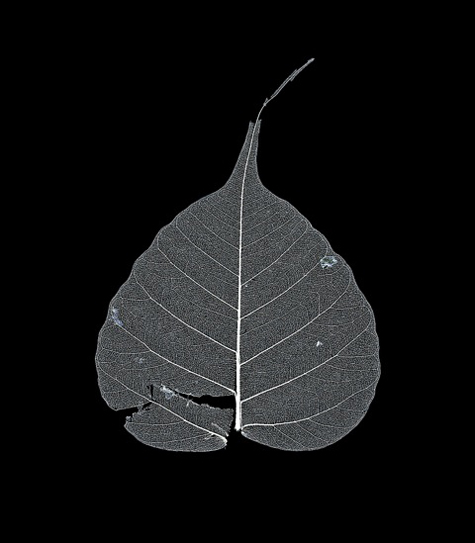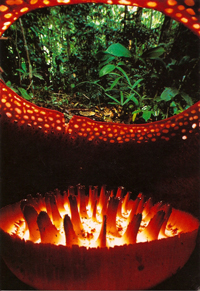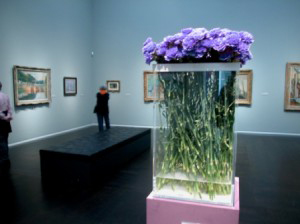Human Flower Project
Critical Minds and ‘Vegetal Life’
A new book series will publish interdisciplinary studies of plant “being” in religion, food systems, philosophy, art and more. The call for proposals is here.
 Arborglyph in an aspen tree, carved by a Basque sheepherder, 1935 (a practice now outlawed), Tahoe National Forest
Arborglyph in an aspen tree, carved by a Basque sheepherder, 1935 (a practice now outlawed), Tahoe National Forest
Photo: L. Hanson
If plants and flowers provoke you to philosophize, if you’d just as soon re-read Allen Ginsberg’s “Sunflower Sutra” as fertilize the peonies, please turn your inspired attention to a new book series from Rodopi (a scholarly publisher based in Amsterdam).
Michael Marder, in the Department of Philosophy of The University of the Basque Country, Vitoria-Gasteiz, kindly asked us to spread the word. The project’s editor, he writes, “This is the first series on ‘critical plant studies’ in the world. We are very enthusiastic about it and are looking forward to receiving manuscripts and book proposals for evaluation.”
Michael thought that Human Flower Project readers and writers were likely to have such books germinating, and we believe he’s right. Georgia, Allen, Jill, Sandy, and EarthScholars Jim and Renee, we know you have a wealth of ideas. And we trust that many other readers do as well. Here you go!

A model adorned with vegetables by Japanese artist Takaya
Photo: via dezeen
Manuscripts and proposals solicited for
Critical Plant Studies: Philosophy, Literature, Culture
book series (Rodopi Press)
Series Editor: Michael Marder (Ikerbasque / The University of the Basque Country, Vitoria)
The goal of the Critical Plant Studies, a new book series at Rodopi Press, is to initiate an interdisciplinary dialogue, whereby philosophy and literature would learn from each other to think about, imagine, and describe, vegetal life with critical awareness, conceptual rigor, and ethical sensitivity.
Literary works featuring plant imagery may be analyzed with reference to philosophical frameworks, while philosophical discussions of the meanings of vegetal life may be enriched and supported with the tools of literary criticism. Another dialogic dimension of the series entails a sustained engagement between Western and non-Western philosophies and religious traditions, representative of the human attitudes to plants. This “cross-pollination” of different fields of knowledge and experience will become possible thanks to the fundamental role plants play in human life, regardless of their backgrounding or neglect. (Note: Sounds like a reference to Jim and Renee’s work on “plant blindness.”)

Pipal leaf (Sacred Bo tree), 2012
Photo: Carolyn Courtney
Ethically stated, the aim of the book series is to encourage an incremental shift of cultural attitudes from a purely instrumental to a respectful approach to vegetal beings. This is particularly important at the current time of the global environmental crisis, when massive de-forestation, seed patenting, and profit-driven agriculture threaten the very future of life on the planet. Not only will works included in the series shed light on the being of plants, but they will also assist us in critically thinking through the crucial issues and challenges of the contemporary world.
 Raffelesia plant, view from the interior, Borneo
Raffelesia plant, view from the interior, Borneo
Photo: Frans Lanting
Bioethics and genetic engineering, of which plants were the first examples
The role of spirituality and holism in the techno-scientific age
The reliance of our imagination and creativity on elements of the “natural” world
Global food shortages and sustainable agricultural practices
The roots of our thinking and writing in other-than-human, vegetal processes, such as growth and decay, germination and branching out, fecundation and fruition
—books included in Critical Plant Studies will, in one way or another, touch upon these and related themes central to the philosophy, literature, and culture of the twenty-first century.
Thus, we are looking to publish a mix of specialized manuscripts and introductory texts on the theory, literary criticism, and religious or aesthetic appreciation of plant life. Each title in the series will combine at least two of the disciplines listed above, with preference given to cutting-edge methodologies in comparative literature, comparative philosophy, comparative religious studies, etc., and trans-disciplinary approaches. Analyses of plant-related writings and artworks from any historical period and geographical area will be welcome.
 Genetically modified carnations in an art installation “Common Flowers” by Georg Tremmel and Shiho Fukuhara
Genetically modified carnations in an art installation “Common Flowers” by Georg Tremmel and Shiho Fukuhara
Photo: via AEC
Please, forward all queries and proposals to .(JavaScript must be enabled to view this email address)
*********
Thank you, Michael. If you want to give us a deadline – both plants and humans seem to need them – please send that along and we’ll add it here.

